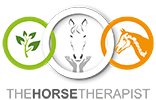Soy, a healthy option for equines or not?
Nowadays a lot of horse feed Companies add soy to the horses diet.
But why would they do this?
Most horse owners don’t check the ingredients/composition and only read what is says on the front of the bag. Which, for example will say:
- safe to use for horses prone to laminitis and overweight
- safe to use for horses with EMS and insulin resistance
- recommend by vets and nutritionists
- contains everything your horse needs
But is this true?
When you look at the composition you will find ingredients such as soy oil, soy bean meal and soy hulls. So you expect this to be healthy for equines, right?
What is soy bean? Is it healthy? and does it have benefits for your horse or not?
The soybean, is a species of legume native to East Asia, widely grown for its edible bean, which has numerous uses. Such as products for human consumption, but mostly it is used for the oil and animal feed industry.
You will find a lot of genetically modified Soybean in horse feed, shown as (GM or GMO ). These crops are herbicide resistant. So farmers have to spray them heavily with chemical herbicides, leaving the hulls contaminated with these toxins. Which isn’t something I would like to feed my horse
Soy also contains a starch called stachyose, this cannot be digested in small intestine. So it is transported to large intestine and here it makes microbes grow that you don’t need there. Horses can get flatulence from this. I don’t think anyone would want this for their horse.
Soybeans also contain goitrogens, which are the estrogenic plant hormones.
Goitrogens can lead to:
• Depressed thyroid function
• Pancreatic stress
• Phytates which prevent absorption of life enhancing minerals
• Phytoestrogens which can block the hormone estrogen and have adverse effects on tissues
• Allergies
A lot of horses that are fed soy can lack minerals such as iron, manganese, chromium, cobalt and sometimes selenium. These are very important for the growth of connective tissue in tendons, ligaments, joint cartilage, hoof and hair.
Several tests have been done on animals. One of them was a test on cheetahs. The cheetahs were fed soybean and they developed an infertility syndrome, which was irreversible when the soybeans were left out of the diet. This observation was explained afterwards due to the presence of phyto-oestrogens in soy.
A lot of people think soy is a good source of protein but it is actually poor in methionine, which is one the of 3 essential amino acids and this one is important for its detoxing properties.
So why is there soy in horse feed?
I guess there is only one reason for that. It is cheap! It is the cheapest option to add protein to horse feed.
So what can you feed instead of soy?
There are other healthier ways of getting proteins into your horse. Such as:
- hemp seed or hemp plant
- crushed linseed
- alfalfa
- sainfoin
Please note that most horses will get enough proteins out of good quality hay. If you feed too many proteins then the horse can get fat. Most horses that need the extra protein are horses that work a lot and need it to support their muscles. But also older horses that need to put on weight, horses that have been ill, young horses in growth as well as pregnant and lactating broodmares.
At the Horse Therapist we try to share as much knowledge as we can. Our goal is to get horses healthy again and make people aware of what is or is not suitable for horses. If you would like to learn more and educate yourself then please check out the online course `feeding horses fit`.
Sources:
Course feeding horses, given by Dr. Christina Fritz
https://depaoloequineconcepts.wordpress.com/2016/05/31/the-negatives-effect-of-feeding-soy-to-horses/
https://equinechallengesupplements.com/soy-in-horse-feeds-the-silent-antinutrient/?fbclid=IwAR07l6zm3LH_Txa5-0E-Cnl_FwjN8pcFIE2yGaJTYZVyft7Z5AUkAmNYjWY
https://www.mcdowellsherbal.com/treatments/for-horses/1688-hemp-for-horses
Book: Dutch book `Groot handboek geneeskrachtige planten van Dr. Geert Verhelst`
Written by Sharon Bronsveld
